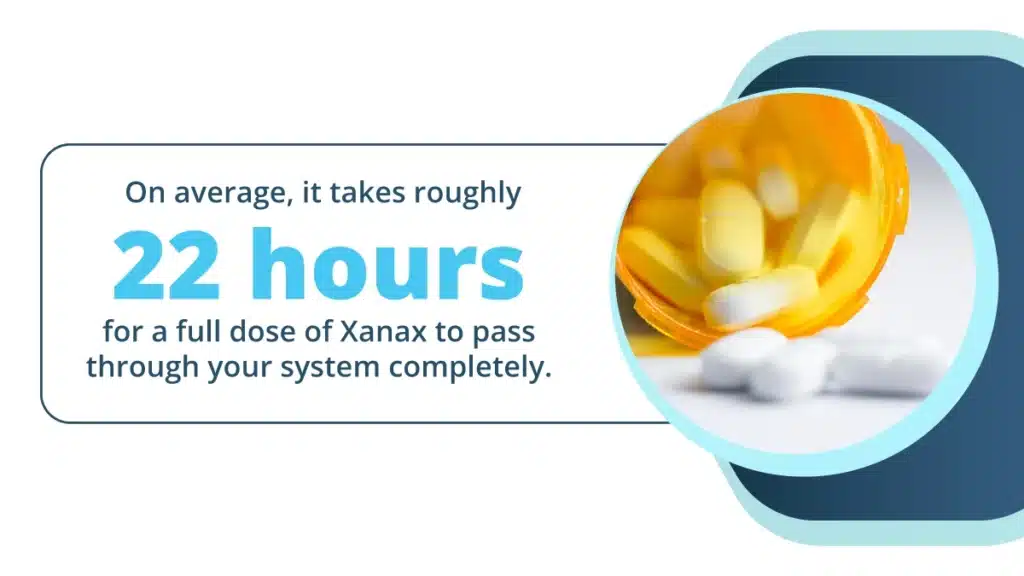Alprazolam, best known by its brand name Xanax, is a benzodiazepine prescription for treating anxiety and preventing panic attacks.
It is one of the prescription medications for anxiety combined with alcohol that can lead to an overdose and turn into a substance use disorder. People may feel double the impact of both drugs by mixing Xanax and alcohol.
Due to a lack of awareness regarding the possible adverse effects of mixing Xanax and alcohol, some people occasionally do so. Nonetheless, there is a serious risk that the impact of these drugs will be enhanced when combined, which can lead to adverse effects or even lethal overdose in some situations.
Side Effects of Xanax (Alone)
The goal of using Xanax during extreme anxiety is to reduce mental and physical tension. A few of the unusual but probable mental adverse effects are as follows:
- Mood swings
- Depression
- Problems focusing and remembering distress and agitation
- Negative sleep disturbances have been linked to contrasting sensory input
- Hallucinations
When combined with alcohol, the side effects of Xanax can be exaggerated and elevated, meaning they can be more extreme and dangerous than when taking Xanax alone. You should definitely not drink while taking the medication because alcohol is, similar to Xanax, a depressant in nature.

How soon after Xanax can you drink?
According to the Food and Drug Administration (FDA), the best time to drink alcohol is after the last trace of Xanax has left your system. The half-life of Xanax is 11 hours, so half of the dose is processed and eliminated after 11 hours have passed. On average, it takes roughly 22 hours for a full dose of Xanax to pass through your system completely.
But, since every person’s metabolism of medications is unique, it’s challenging to determine precisely when a benzodiazepine like Xanax will be cleared from the body. Both alcohol and Xanax are harmful to the central nervous system, especially when you’re talking about alcohol and benzo abuse.
Remember that combining Xanax with alcohol can have a multiplying effect, lowering your state of consciousness to potentially fatal levels. It is never recommended to try Xanax along with alcohol use. Doctors will advise you never to drink while taking this medication as prescribed. Unfortunately, some are unable to stop using Xanax and alcohol.
Addiction to Xanax and Alcohol
Addiction is characterized by obsessive drug seeking and usage, and it is more likely to develop with prolonged use of alcohol or Xanax.
Concurrent use of both substances also raises the likelihood of becoming addicted to both substances. Alcohol and Xanax dependence can lead to increasingly severe withdrawal symptoms if an attempt is made to cut back on usage of either substance.
Because of the elevated danger of oxygen deprivation and anoxic brain injury, combining these two medicines may have catastrophic neurological effects and lifelong brain damage. You will put yourself at greater risk if you consume these altogether.
Substance Abuse: Mixing Xanax and Alcohol
Abuse of both Xanax and alcohol, if continued, can have devastating effects on a person’s health. Excessive utilization typically results in catastrophe and severe side effects. This includes, but is not limited to:
- Permanent memory loss
- liver damage
- Chronic insomnia due to renal damage
- Respiratory disorder
- High blood pressure
Around 27.2 percent of people report mixing both alcohol and benzodiazepines. But, it is never safe to consume both together as the propensity to use both drugs simultaneously is considered polysubstance abuse due to the increased risk of addiction and misuse.
One of the primary causes of addiction is the feeling of helplessness that comes with withdrawal and the subsequent urge to take another substance to cope with the unpleasant symptoms.
Mixing alcohol and Xanax makes it more likely that you will experience elevated side effects as well as withdrawal symptoms of both substances, increasing your chances of feeling helpless against and addicted to them both.
Recovery from Alcohol and Xanax Dependence
Detoxification, psychotherapy, and ongoing support are typical components of Xanax and alcohol addiction treatment. During these treatments, all traces of substance misuse are purified from the system. Detoxing in a rehab center, also called a “medical detox” because of the presence of trained medical staff, guarantee patient safety, while psychotherapy continues recovery and ongoing support prevents relapses.
Frequently Asked Questions
Can I drink the same day I take Xanax?
Taking alcohol along with depressant medications such as Xanax can exacerbate the side effects of that medication. Respiratory issues, low concentration, and extreme drowsiness can be some of the side effects. It is too dangerous to drink and take Xanax on the same day because of its long half-life of 11 hours.
How many hours can you drink after Xanax?
Both substances are sedatives, leading to a big problem as they can have a potentially lethal combination. The safest time to drink is 27 hours after your last dose of Xanax when it is almost certain that all traces of the substance have left the body through natural processes.
What would happen if you took Xanax while drinking alcohol?
Abide by your physician’s advice as these both should not be combined because they can bring lethal consequences to low breathing rates, high blood pressure, and lapses in judgment that cause fatal accidents. You never know what will happen if you combine two powerful depressant drugs like alcohol and Xanax, but the consequences are not likely to be good.
The Haven Detox Can Help
It is substantial to recognize when it’s time to get medical detox help or residential treatment at a treatment center like The Haven Detox in West Palm Beach. We will help you deal with substance use disorders like mixing Xanax and alcohol right away if you call (561)-328-8627.